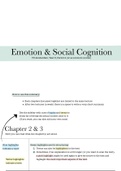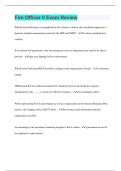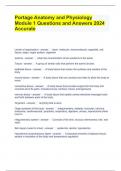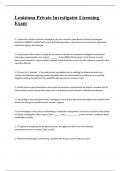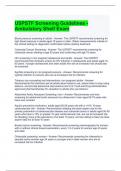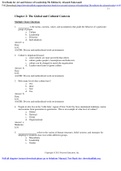Samenvatting
Summary Emotion & Social Cognition - English - Year 3, Period 4 (or honors) - VU Psychology
This is an English summary of the Emotion & Social Cognition (honors) course at the VU Amsterdam (third year). It includes everything from the lectures and the book (except the neurological structures, but these are not exam material). Good luck studying!
[Meer zien]
